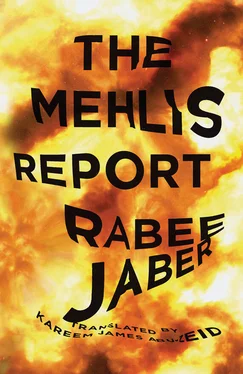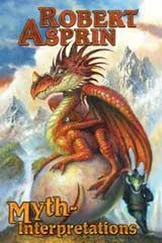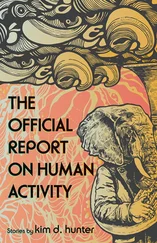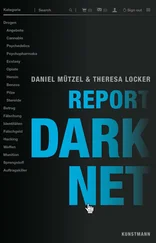The blows to my head. An awful one against my right ear. Then my head on the tiles. Maybe they weren’t tiles, the room might have had a concrete floor, I don’t know. But I remember the ice rising from the ground and into my face. That’s the last thing I remember from the land of the living. Blood was pouring out of my nose, out of my ears, out of my eyes, and ice was rising from the ground and piercing my head, my fingers, my stomach, my mouth. My tongue froze. I wanted to say something, but the cold shut me up. I trembled as the ice took hold of my face and darkness filled my eyes. Then I faded off.
The cold. That’s the last thing I remember from the land of the living.
I open my eyes and see the moon, white and round against the dark blue sky, and know I am not dead. I opened my eyes and saw the moon, white and round against the dark blue sky, and knew I wasn’t dead. I wasn’t dead. That was the night sky. And that was the full moon shining down on the sleeping city. I was not dead, but where was I? And what was that horrible pain in my head? Pain? No, not pain. The memory of pain. It wasn’t pain anymore, merely something like a ringing in my eardrum, there where the last blow landed. I wanted to wipe the blood from my nose, but it had dried. The blood on my hair was dry too. My hair was all tangled up, and had become as stiff as dry dough. I rubbed at the dried blood in my hair, but it didn’t come off. It stuck to my head like glue.
I wasn’t dead, but where was I? I closed my eyes and felt a movement in the darkness, and a blanket fell over me. I could tell it was a wool blanket even before I opened my eyes. Who threw me that cover while I lay out in the open air? I did not know.
I wanted to move, to get up, but my body was heavy. They’d beaten me for a long time. With the butts of their guns. With wooden sticks that looked like table legs. And they’d kicked me with massive boots. Why did they beat me? Tell me what you want, I said to them, don’t beat me. My family has money. Don’t beat me. Call this number and give them my name and tell them you. A man punched me in the mouth. He broke some teeth. He broke a single tooth, but I thought I could feel all my teeth come loose and almost fall from my mouth. He punched me again, and all I could think of was spitting: I was afraid I’d swallow the tooth.
All of that was over now. I opened my eyes and touched the blanket, and felt that I was warm. Where was my green blouse? Why had they taken my green blouse? At least they had left me my short gray undershirt. And the skirt? The skirt was there too. I could feel it scrunched up beneath me. I should get up. The ground was muddy. And I could see — far away — mustard-colored eyes staring at me. Whose eyes were they? Rabbits? Mice? Dogs? Where was I?
I managed to get up, even though my body was half-shattered. I suddenly felt extremely thirsty. When had I last had something to drink? When did they kidnap me? Last night? Two nights ago? Three? Or was it more? Or less? I wanted to remember, but all of my memories seemed far off, seemed to come back to me from a distance, like the streets of Brussels. That end-of-summer vacation. I was so full of joy as I wandered freely through the endless shops, one after the other. The suitcases couldn’t possibly hold all those clothes. I bought so much stuff for myself, and a lot of presents for everyone else. I didn’t watch the news on TV in the evenings. In a few days we’d be back Beirut, drowning in its news. Right now I was enjoying my time; enjoying the food, and the company, and the shopping; seeing the sights; and looking at the doves and pigeons in the squares. Look, Philippe said, all of them have red feet, the white doves, and the gray and black pigeons too — they’ve all got red feet, look!
Now all I could see was the moon, as white as cotton, a full circle, like a giant eye watching me from above. The city stretched out on this side, and on the other, still, dead, silent. There were no televisions flickering in the windows; there were no bullets being sprayed into the sky. Where was I? I suddenly knew where I was: I could see the Roman columns and the cypress trees and the steps of the National Museum. I was at the crossing by the museum! I was on the demarcation line between East and West Beirut. I’d been here when a voice shouted out behind me. I’d been here when I saw masked men running toward me. At first I didn’t see the machine guns in their hands. And then I did. Were they wearing masks, or did they have bags over their heads? What happened after that?
I felt extremely thirsty. How many nights had I spent with them? What did they do to me after I lost consciousness? I couldn’t remember anything. I ran my hand over my body and felt cold. Cold? No, not cold, rather the memory of feeling cold. I didn’t feel cold now, the feeling of cold was over. Where should I go?
Should I circle around the drums and barricades and head up the road to the Hôtel-Dieu Hospital, to Achrafieh? There’s sniper fire on those streets. From where I was standing, I could see the moon reflected on the windows of Achrafieh, the windows of the tall buildings. Why did the city seem so abandoned, so black?
I wanted to circle around the barricades, but phosphorescent eyes appeared above the sandbags and bags of cement. I moved away in fear. I had to be careful. To move in a straight line. To not enter the other side by mistake. The white moon lit up the roads and barricades, the buildings and dusty trees. I couldn’t hear a sound. It was as if I’d gone deaf.
I walked along the demarcation line from the museum to Sodeco Square. It took me an hour, or two, or three — I don’t know. It might have only taken the blink of an eye. Where was time? The moon was motionless. A cloud passed in front of it, covering me in darkness, and I no longer knew where to set my feet. Then the cloud left the moon’s face, faded away, and white light poured onto that furrowed pockmarked street. I saw the white bones of men. I saw a dead donkey, the flies congregating on its belly. But the flies were silent. They weren’t buzzing. They were green and noiseless. Bats passed through the silver air and disappeared among the pine trees at the racetrack. The city was silent, dead. West Beirut was dead. So was East Beirut. Where had everyone gone? Even at night, you could always hear voices, you could see the flames and lights, you could hear the TVs and radios, the cars, the wheels of the armored vehicles on the pavement, the shells, the booming of the anti-aircraft guns. Where were the city’s people? Where were their voices?
I wanted to enter East Beirut. From here — at the Sodeco crossing — I could see the Nasra Tower. The moonlight shone on that giant specter of a building, its walls riddled with artillery holes. I could see a sycamore in front of it. I saw nocturnal birds lighting on the asphalt. What birds were those? I didn’t know what they were called. From there I could see the Furn al-Nasra Bakery. I saw the barricades — barricades and roadblocks. But I could not see the guards. I saw neither soldiers nor civilians. I only saw those yellow eyes near the ground. They were far off. Were they rats? The moonlight didn’t reach them. It was as if their bodies were planted in the ground. I was too afraid to draw any nearer. They were watching me. And they were following me, from the one side of the city, and from the other. At first I didn’t notice. And then I did. Even over there — on the western side — those yellow holes were crawling along after me. Where could I escape?
I realized I couldn’t escape. I realized those eyes were leading me somewhere. The road descended, so I followed it between two rows of collapsing buildings, between wrecked shops and burning cars, until I reached a muddy patch of swampland that stretched from beneath the Fuad Shihab Bridge to just in front of the ruined City Palace Cinema. The swamp’s surface reflected the moonlight. Although it was mud, it shone like a mirror. Mosquitoes were hovering just above it, but I couldn’t hear them. I pulled the blanket around my body, and did not move. I felt no pain in any of my limbs, but I did feel thirsty. My mouth was parched, as if my tongue were made of wood.
Читать дальше












